Onion seeds vs onion sets – which is better for your vegetable plot?
Understanding the facts when it comes to onion seeds vs onion sets can help you succeed this season
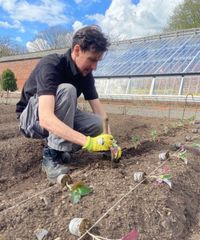
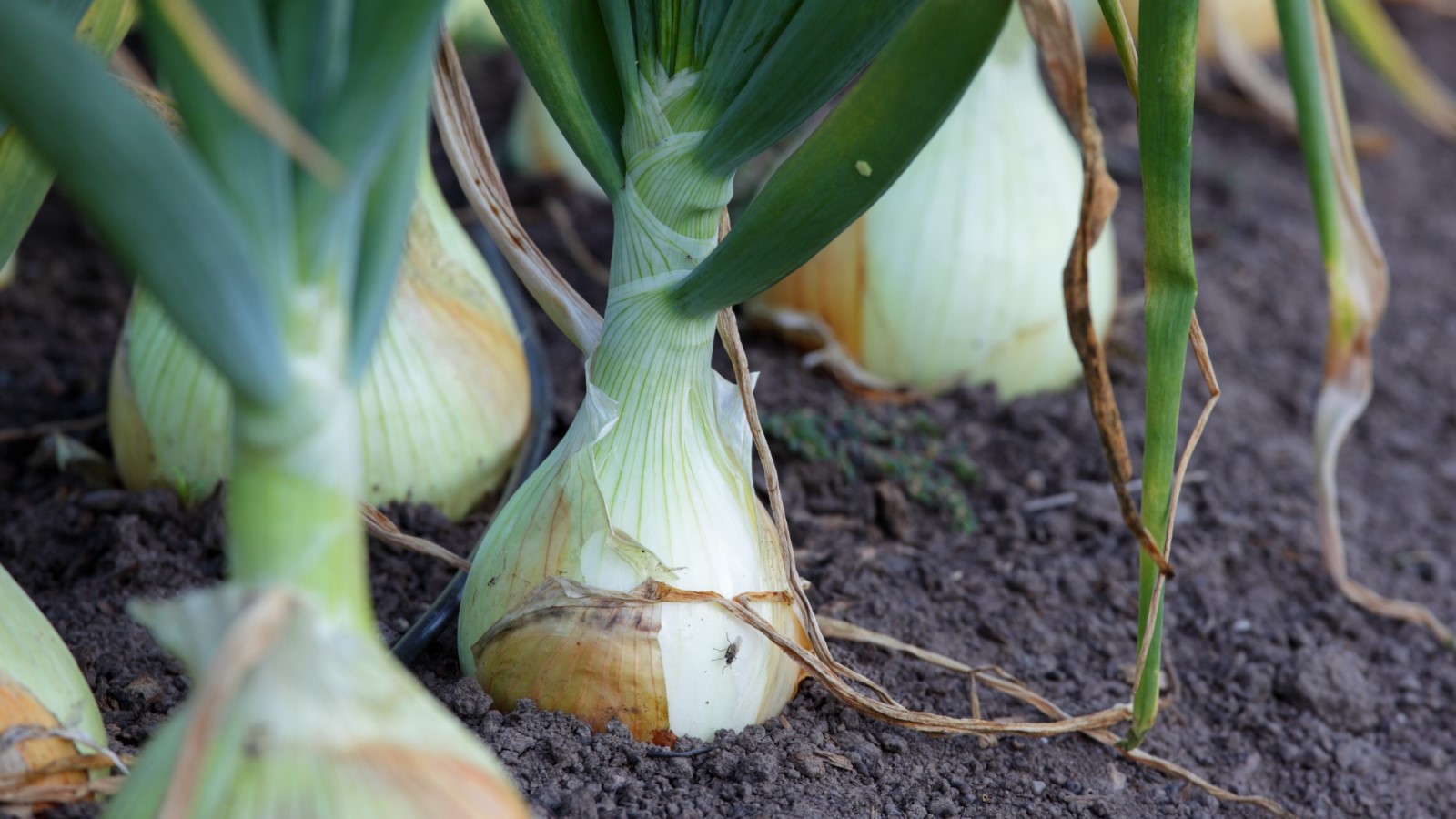
Design expertise in your inbox – from inspiring decorating ideas and beautiful celebrity homes to practical gardening advice and shopping round-ups.
You are now subscribed
Your newsletter sign-up was successful
Want to add more newsletters?

Twice a week
Homes&Gardens
The ultimate interior design resource from the world's leading experts - discover inspiring decorating ideas, color scheming know-how, garden inspiration and shopping expertise.

Once a week
In The Loop from Next In Design
Members of the Next in Design Circle will receive In the Loop, our weekly email filled with trade news, names to know and spotlight moments. Together we’re building a brighter design future.

Twice a week
Cucina
Whether you’re passionate about hosting exquisite dinners, experimenting with culinary trends, or perfecting your kitchen's design with timeless elegance and innovative functionality, this newsletter is here to inspire
If you are wanting to start growing onions, you will be confronted with two options. Do you grow them by using onion seeds or onion sets? It is beneficial to understand the differences involved in growing onions in each of these ways. Both offer their own pros and cons to the home grower and one may be more suited to your garden, your budget, or what you want from your onion harvest.
Even if you are an experienced hand at growing onions, it could help to consider trying things a bit different. Whether through mere curiosity or a strive to grow bigger onions, there are new techniques to try.
From a personal perspective, I have grown different varieties of onions for several years. The locations and final goals for these have ranged from cultivating them on an allotment for personal use to growing them in a productive walled garden in large numbers to be used by chefs. I have used both onion seeds and onion sets over the years and found that each does have their advantages and disadvantages.
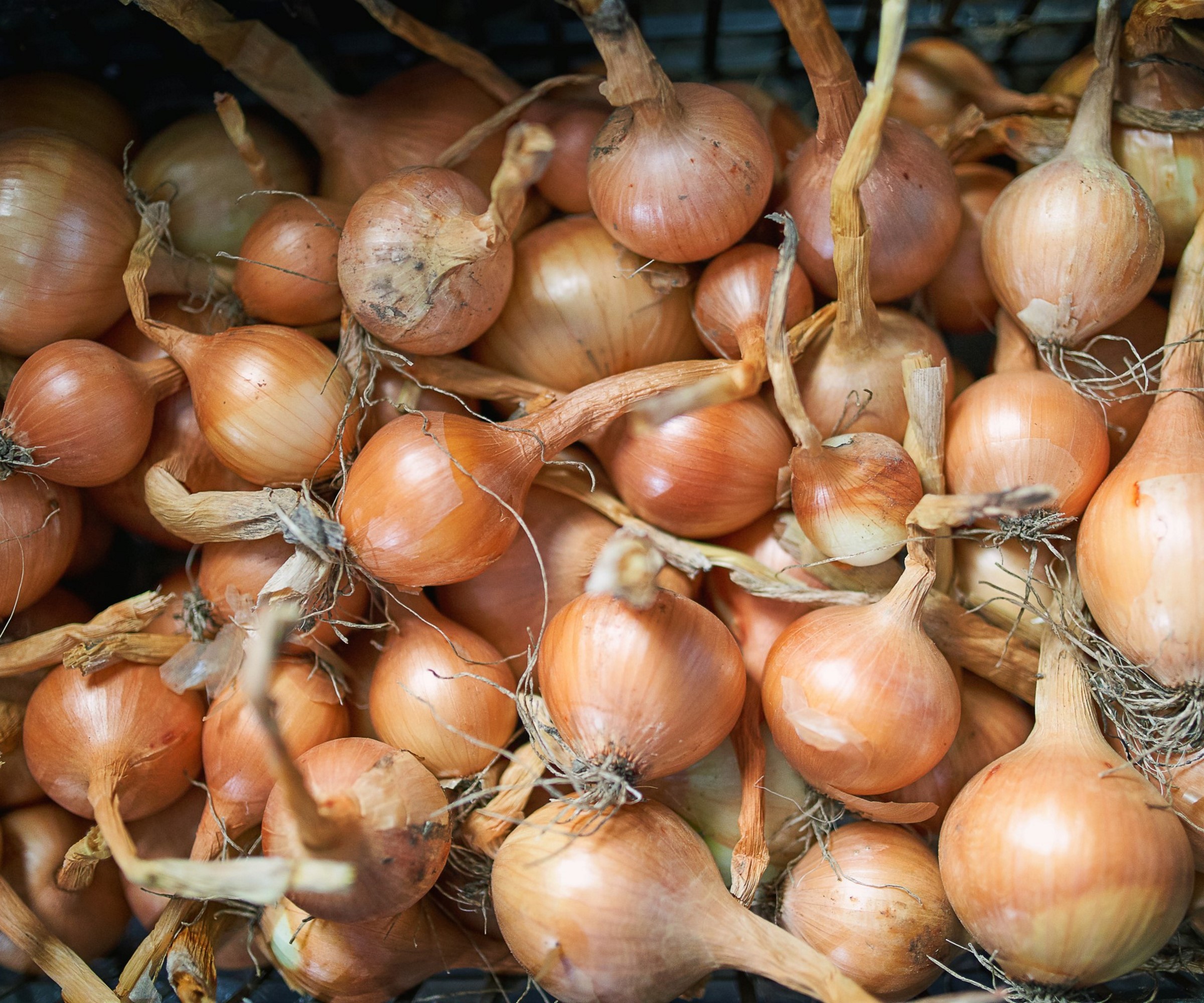
Onions are a common sight growing in vegetable gardens

Drew is a former professional gardener who specialized in growing vegetables and fruit. He worked in kitchen gardens for the National Trust in the UK for several years and then ran a productive walled garden growing vegetables, fruit, herbs, microgreens, and flowers for a high-caliber restaurant in England.
Onion seeds vs onion sets – breaking down the facts
Both of these methods of growing onions are tried-and-trusted and have proven successful for growers for many years. It is important to really understand the two techniques, in terms of what each entails, how you utilize them, and what benefits and drawbacks they offer for your kitchen garden.
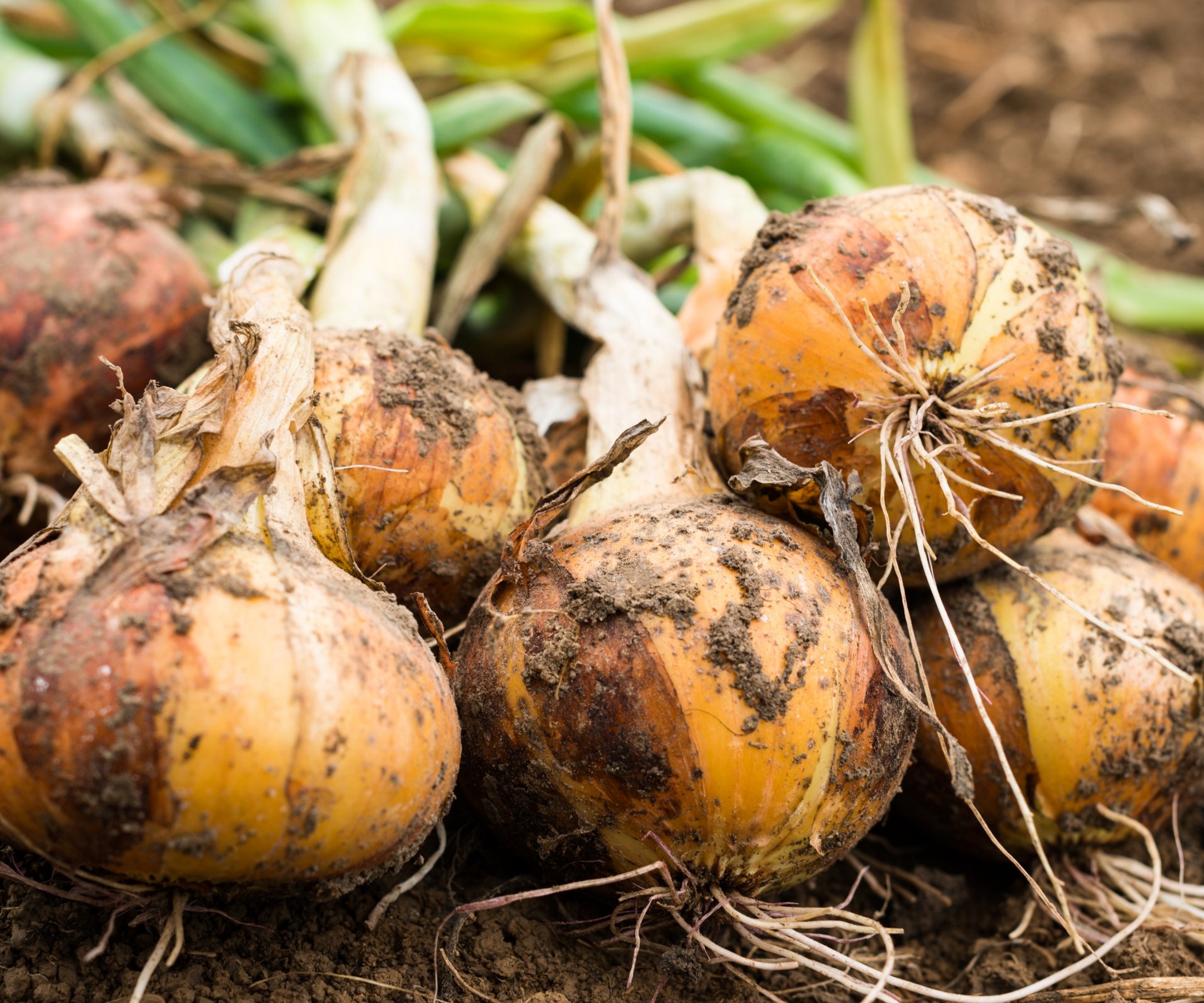
Onions usually take around five months growing outdoors to reach full size
Sowing onion seeds = more options and bigger bulbs
Onion seeds can be started early in the year, or even at the end of the year. It has become a tradition for many growers to sow their onion seeds straight after Christmas ready for the seedlings to be planted out in spring when the soil warms up. This is often only an option if you have a good heated greenhouse.
Onion seeds can be sown indoors in late winter, sown in trays or modules at temperatures of 50-61˚F, and then planted out mid-to-late spring after a period of hardening off. Onion seeds can also be sown directly outdoors into a finely raked bed in the spring.
Pros of growing onions from seed:
Design expertise in your inbox – from inspiring decorating ideas and beautiful celebrity homes to practical gardening advice and shopping round-ups.
- There is a wide variety of cultivars available to choose from.
- Onions grown from seeds are less prone to bolting.
- Seeds are a lot cheaper to buy than sets, so a more budget-friendly option
- The sowing times are more flexible.
- Growing from seed tends to result in large onions.
Cons of growing onions from seeds:
- Growing onions from seed is more labor intensive.
- Requires focused sowing, watering, and planting out.
- Needs materials – compost, pots, and a heated indoor space or propagator.
- Onions grown from seed can be more susceptible to disease.
The experts at Amateur Gardening recommend: 'Sow large varieties in cells, thinning down to one seedling per cell. Onions can be sown cold, but a temperature of around 50˚F will move growth along more quickly.'
Buy onion seeds for your vegetable plot: shop at Amazon
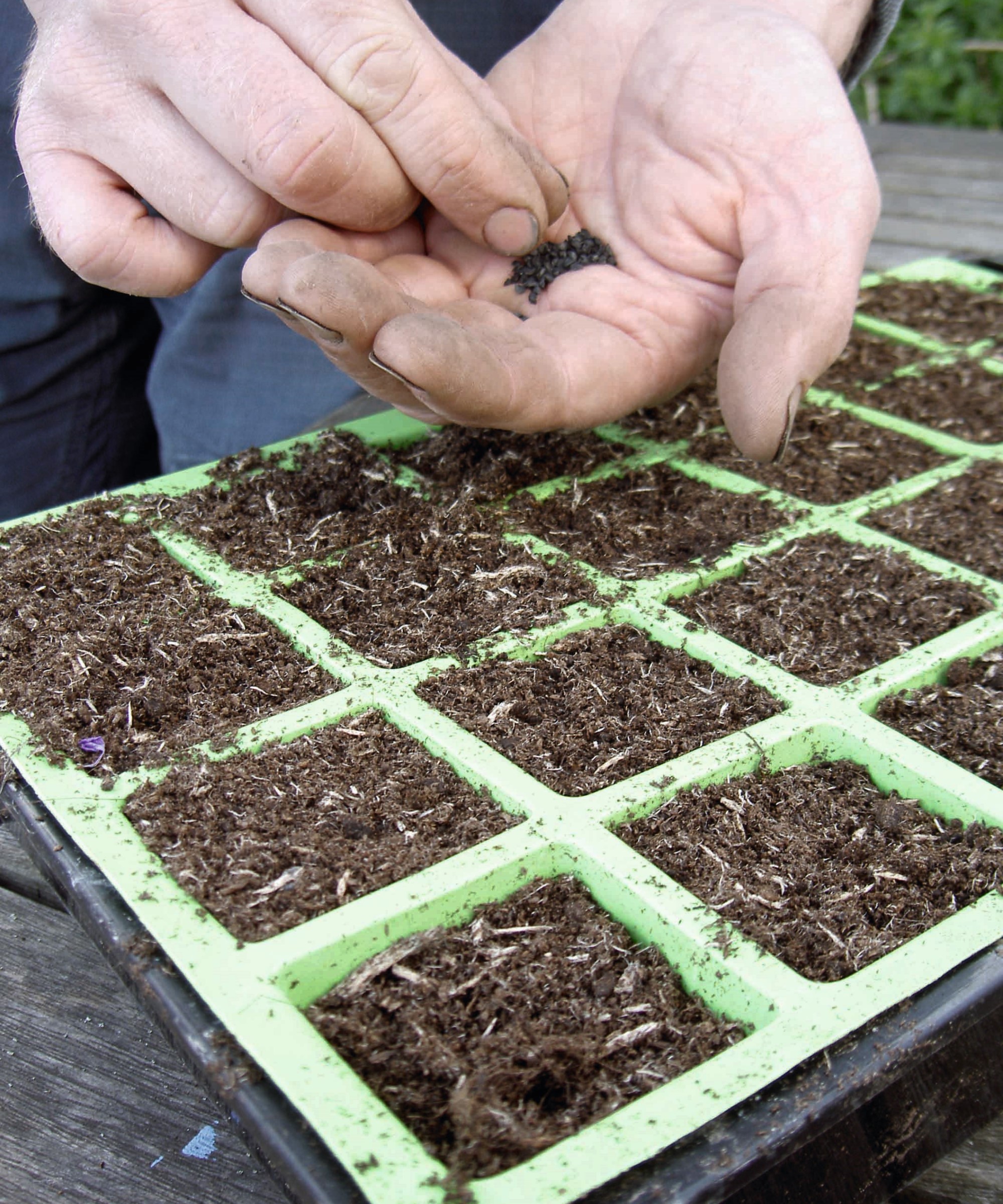
Onion seeds should be sown indoors in winter in trays or modules
The simplicity of planting onion sets
Onion sets are part-grown onions that have been started into growth from seed and not allowed to grow to full size. Its first-year development has been stopped and the small, immature bulbs dried off and stored through winter. Planting onion sets is commonly done in early spring, though there are some varieties that can be planted in fall. To plant onion sets, simply push them into the soil 4in apart in your veg patch or raised garden bed so their tips are just showing.
Graham Rice, expert for Amateur Gardening, claims the main benefit of onion sets is 'that they’re very easy'.
'It’s hard to mess up and you have to do something seriously wrong to get no crop,' he adds. 'Plant them in early to mid spring and away they go. You bypass the tricky seed germination stage – all that’s needed is a little bit of watering and weeding, and you’ll be harvesting onions from the middle of summer.
'It’s worth remembering that onions grown from sets tend to produce slightly smaller bulbs than those grown from seed, but this is a small price to pay when you consider how much easier they are.'
Pros of growing onions from sets:
- Sets are easier to grow, they just need to be pushed into the soil.
- They are less prone to disease.
- Sets allow for a good crop even in poor soil types.
- Onions grown from sets are ready to harvest earlier and can still mature even in a short season.
Cons of growing onions from sets:
- Only a limited range of onion varieties available as sets.
- Sets are more expensive to buy than seeds.
- Onions grown from sets are more prone to bolting.
- Sets can come with more critical dates for planting.
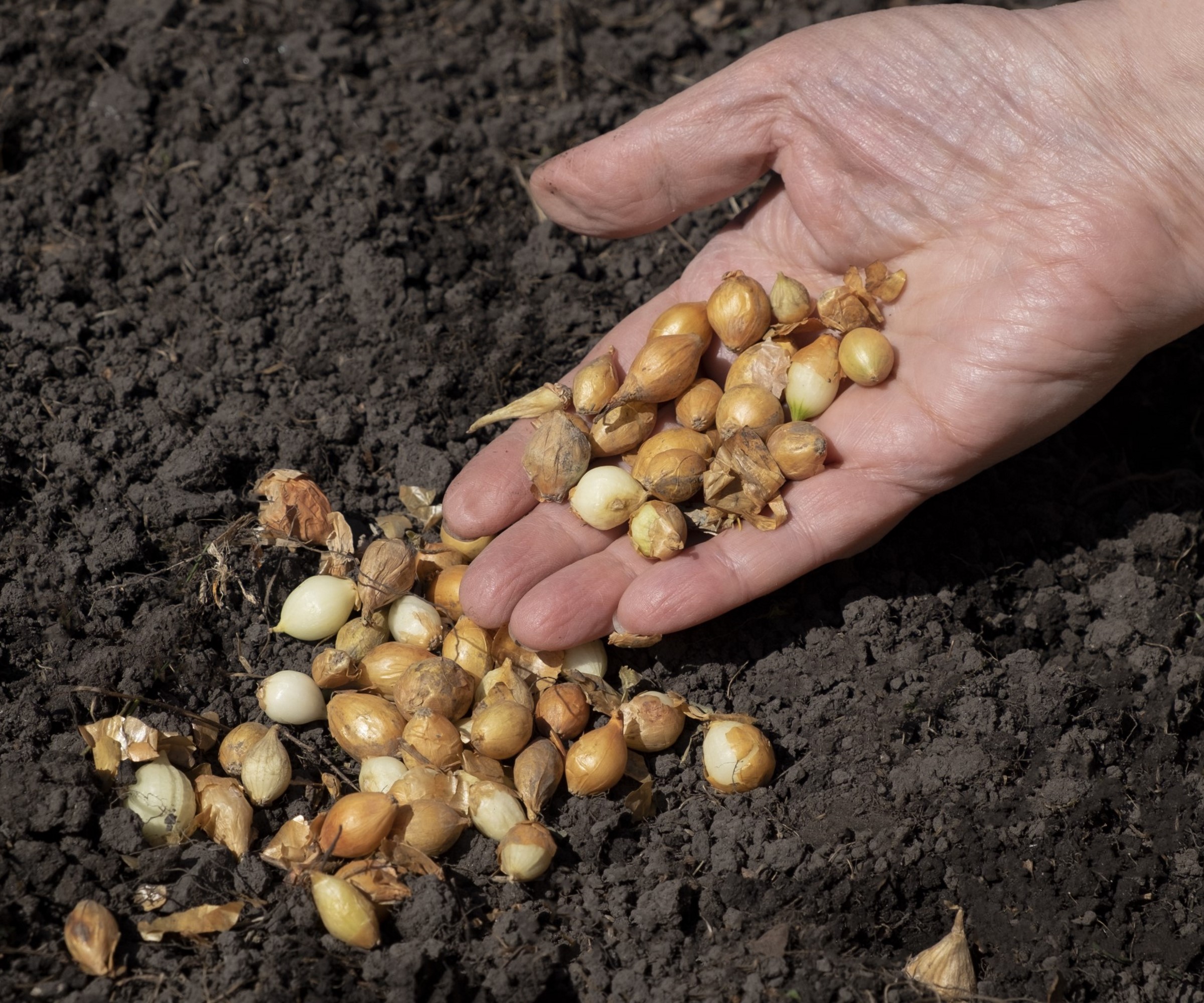
Onion sets are quick and easy to plant
Onion sets can also be started indoors early and Bob Flowerdew, Amateur Gardening's organic expert, advises that starting off onion sets in small pots or modules can be advantageous as they are 'easier planting out' than a seedling started from seed.
Onion sets are planted later in spring than seeds are sown – and that means sets can provide a good back-up alternative to failed sowings. I had an experience where my onion seeds were not germinating well enough and, in order to have a large enough harvest of onions that I required, I still had time to get onion sets and plant them to supplement the number of seedlings I had to plant out and grow on.
Buy onion sets for your vegetable garden: shop at Nature Hills
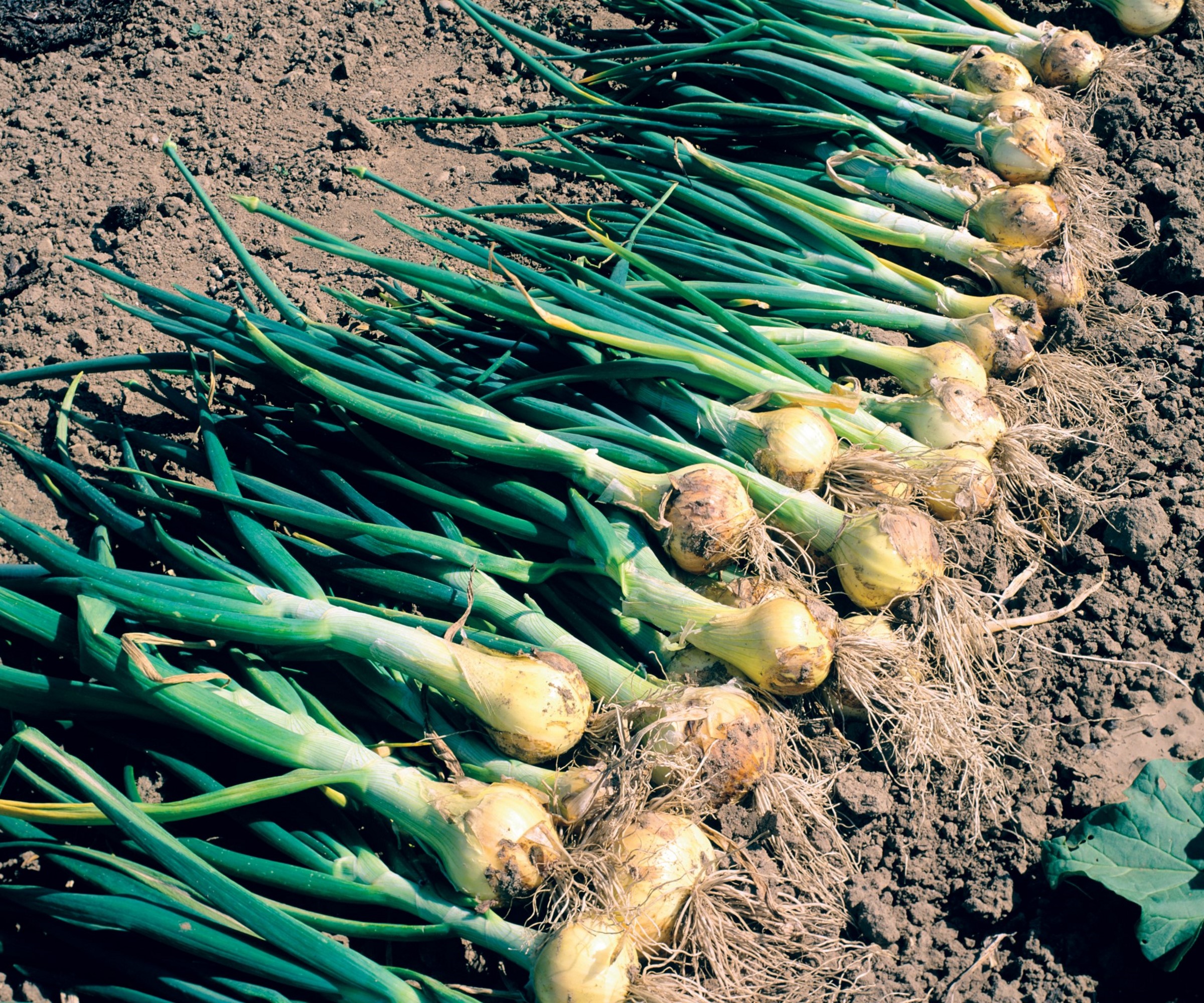
How you grew your onions can impact their harvest size
How to decide if onion seeds or onions sets are best for your vegetable garden
Celebrated gardener Peter Seabrook, a former Amateur Gardening expert, said: 'Know your onions! Seed is cheaper but sets are much easier.'
That statement is very true. There are pros and cons to both forms of growing onions and whichever one you choose is very much going to be a personal decision, based on your own circumstances and ambitions.
Sets are always going to offer an easier route and will be advantageous to anyone who doesn't have the time or indoor space to sow seeds indoors earlier in the vegetable planting calendar. I tended to go down the onion seeds route as I was fortunate enough to have heated indoor growing space and for the numbers I needed to grow it was much more budget-friendly. I do admit I grew more than 500 onions a year, so that is much more than the average home gardener.
I did find that the seed option produced bigger onions and also saw less bolting than with sets. There is also an immense satisfaction that comes from seeing the whole process through, from sowing the seed right at the start of the year, to tending to the plants, to that moment when you harvest onions to eat and store.
Even if you are a staunch believer in sets, I would recommend trying growing some onions from seed to see how you find the experience. But for the pure simplicity and consistency, I can completely understand why people traditionally use onion sets, particularly in a small vegetable garden.

Drew has worked as a writer since 2008 and was also a professional gardener for many years. As a trained horticulturist, he worked in prestigious historic gardens, including Hanbury Hall and the world-famous Hidcote Manor Garden. He also spent time as a specialist kitchen gardener at Soho Farmhouse and Netherby Hall, where he grew vegetables, fruit, herbs, and cut flowers for restaurants. Drew has written for numerous print and online publications and is an allotment holder and garden blogger. He is shortlisted for the Digital Gardening Writer of the Year at the 2025 Garden Media Guild Awards.